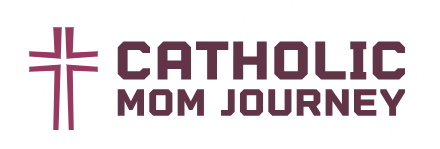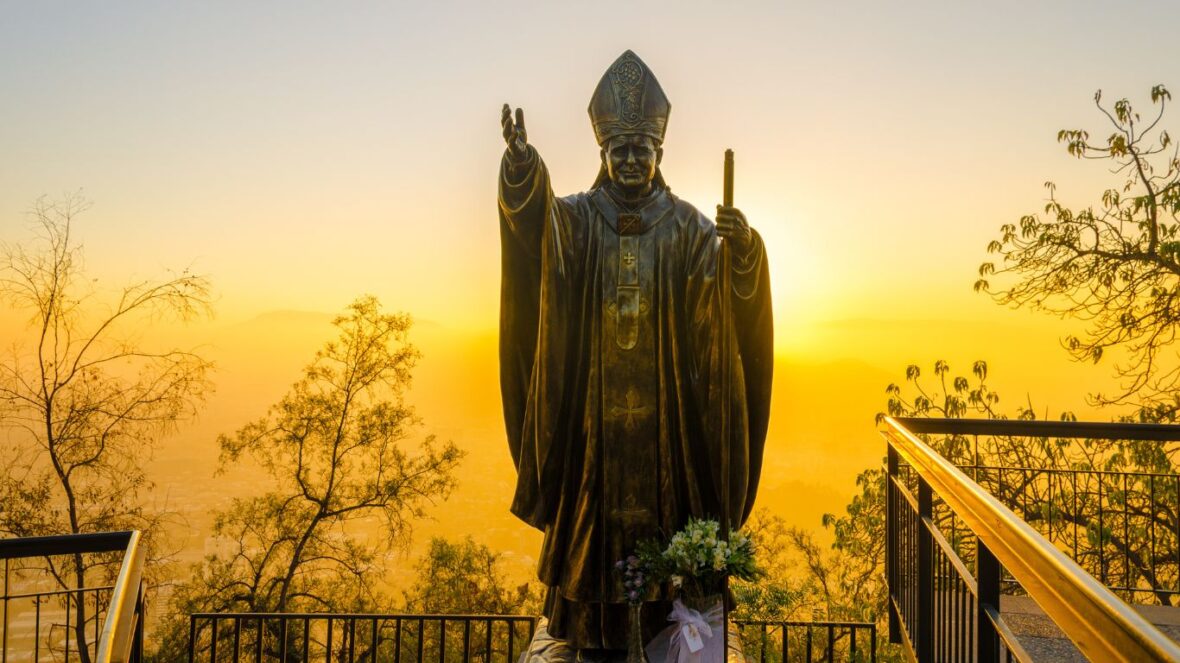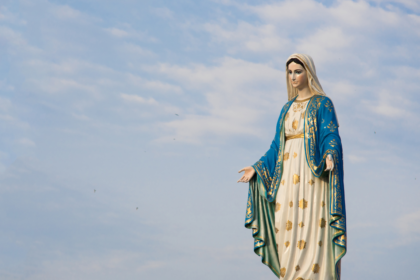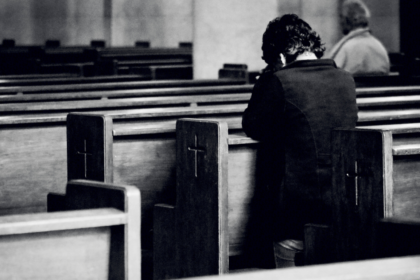There are a handful of memories that I have when it comes to growing up Catholic. Although my faith wasn’t as meaningful to me as it is now, one of the most profound memories that I have revolves around going to Giants Stadium to see Pope Saint John Paul II. Of course, he wasn’t declared a saint when I saw him. But how cool is that? I can say that I actually saw a saint! Well… sort of. I saw him on the big screen of the stadium. Haha.
One of the questions about Catholicism that many people seem to have when it comes to the Catholic faith revolves around the Pope. Who is he exactly? Why is he so important? What does he do? As part of this Catholic mom blog, my goal is to dig in deeper to a few of the more well-known Catholic popes… both the good and the bad. However, in this blog, I thought that it may be helpful to start with some of the basics of a Catholic pope.
What is a Pope in the Catholic Church?
As part of my journey toward finding God, I really wanted to take some time to learn more about the office of the Pope. In the Catholic Church, the Pope is the highest spiritual authority and the visible head of the Church. The Pope is regarded as the successor of Saint Peter, who is believed to have been appointed by Jesus Christ as the leader of the early Christian community. The title “Pope” comes from the Latin word “papa,” meaning “father,” reflecting the Pope’s role as a father figure and shepherd to the Catholic faithful.
As the Bishop of Rome, the Pope holds a position of authority over the entire Catholic Church, including its members, clergy, and institutions. He has the power to make decisions, define doctrine, and govern the Church. The Pope’s teachings and pronouncements on matters of faith and morals are considered to be infallible, meaning they are without error when speaking ex cathedra (from the chair of Peter) on matters of faith and morals.
The Pope’s responsibilities include guiding the Church, preserving its unity, and promoting its mission of spreading the Gospel and caring for the spiritual welfare of its members. He appoints bishops, establishes dioceses, and oversees the administration of the Church worldwide. The Pope also represents the Church in matters of diplomacy and maintains relations with other religious leaders and heads of state.
The selection of a new Pope is carried out by a papal conclave, a gathering of cardinal electors who meet in the Vatican City to choose the next Pope. The Pope’s authority extends until his death or voluntary resignation, at which point the process of selecting a new Pope begins again.
6 Common Questions About a Catholic Pope
It’s only normal for a person who is not familiar with the Catholic faith to have questions about a Catholic pope. For example, as a catechist teacher, there were plenty of kids who had some basic questions about the Pope. There are many people who have been Catholic their entire lives who still have questions about the pope! Here are just a few of the common questions that people tend to have:
1. How is the Pope chosen?
The Pope is selected through a process called a papal conclave. After the death or resignation of a Pope, eligible cardinals gather in Vatican City to elect the next Pope. They vote in multiple rounds until one candidate receives a two-thirds majority. Of course, there are several more levels to the answer of this question. However, this is just the basic and standard explanation.
2. Can the Pope be removed from office?
Technically, the Pope’s position is considered to be permanent until death. However, in rare circumstances, a Pope can resign voluntarily, as Pope Benedict XVI did in 2013. The Pope can only be deposed if he were to teach heresy or commit serious offenses against the faith.
3. Is the Pope infallible?
According to Catholic doctrine, the Pope is considered infallible when he speaks ex cathedra, that is, in his capacity as the supreme authority on matters of faith and morals. This infallibility ensures that his teachings on these specific matters are without error.
4. Can the Pope make changes to Church teachings?
The Pope has the authority to clarify and interpret Church teachings but cannot change fundamental doctrines of faith. The Pope is considered the custodian and guardian of the deposit of faith handed down through Scripture and Tradition, and his role is to ensure the faithful transmission and understanding of those teachings.
5. How long does a Pope serve?
The length of a Pope’s service is not predetermined. It typically continues until the Pope’s death. However, a Pope can choose to resign, as Pope Benedict XVI did in 2013. In such cases, the process of selecting a new Pope begins, and the previous Pope enters the status of Pope Emeritus.
6. How many languages does the Pope speak?
Since there are Catholics all over the world, it comes as no surprise that the Pope is expected to have a command of multiple languages to effectively communicate with Catholics worldwide. Pope Francis,for example, is known to speak Spanish, Italian, and Latin fluently, and he also has a basic understanding of English, French, German, Portuguese, and other languages.
The Current Pope of the Catholic Church
The current Pope of the Catholic Church is Pope Francis. His birth name is Jorge Mario Bergoglio, and he was born on December 17, 1936, in Buenos Aires, Argentina. Pope Francis was elected as the 266th Pope on March 13, 2013, following the resignation of Pope Benedict XVI. He is the first Pope from the Americas and the first Jesuit Pope. Pope Francis has been known for his emphasis on humility, simplicity, care for the poor, and social justice issues.
There is so much more that can be explored when it comes to the office of the Pope in the Catholic church. There are many people who don’t understand how the Pope can be infallible while there are many more people who categorically disagree with the direction that the Catholic church is going in under the leadership of the pope. There have been several completely disasterous popes throughout the years as well.
Do you have a Catholic pope that you would like to learn more about?




